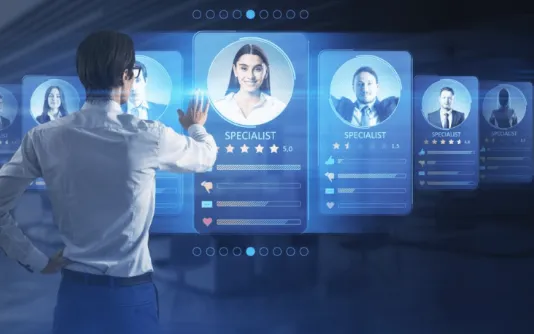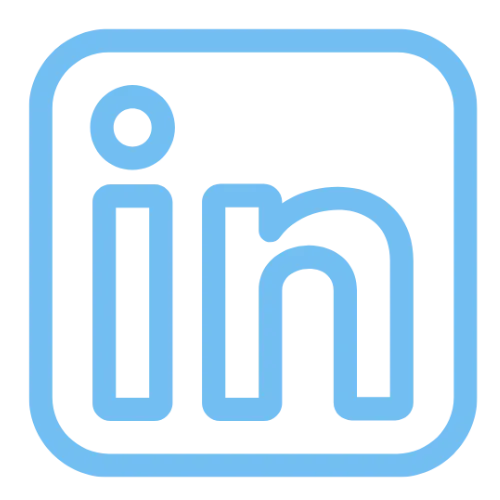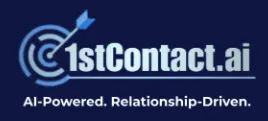
Navigating AI in Modern Job Applications: Modern Job Seekers
In today's increasingly digital job market, artificial intelligence isn't just a buzzword—it's become the invisible gatekeeper standing between qualified candidates and their dream positions. As career coaching experts at CoreTactic, we've guided thousands of professionals through the evolving landscape of AI-powered hiring systems, and we've witnessed firsthand both the challenges and opportunities this technological shift presents.
The Modern Hiring Landscape: AI's Growing Influence
The traditional hiring process has undergone a remarkable transformation over the past decade. What was once a straightforward exchange of resumes and cover letters has evolved into a sophisticated, AI-driven screening system that touches every aspect of the hiring process. From the moment you submit your application until the final hiring decision, artificial intelligence is working behind the scenes, analyzing your credentials, assessing your fit, and influencing your chances of landing that crucial interview.
Recent developments in the field have expanded AI's role beyond simple keyword matching. Today's AI systems are involved in resume screening, conducting preliminary interviews, evaluating candidate responses, analyzing retention potential, and even monitoring employee performance post-hire. This comprehensive integration of AI has fundamentally changed how companies identify, evaluate, and select talent.
The Public's Perspective: Growing Concerns and Resistance
Despite the widespread adoption of AI in hiring processes, public sentiment remains skeptical. According to recent data from the Pew Research Center, an overwhelming 71% of U.S. adults oppose the use of AI in making final hiring decisions. Furthermore, 41% of respondents expressed resistance to AI even reviewing job applications in the first place. These statistics reflect a growing concern about the role of artificial intelligence in making life-changing career decisions.
This skepticism isn't without merit. We've worked with countless qualified professionals who found themselves repeatedly filtered out by AI systems despite having the perfect skill set for the position. The frustration is perhaps best captured by Minneapolis resident Laura Cummings, who noted that "if you don't have the right words in the resume or the cover letter, you just don't move ahead." This observation hits at the heart of one of the most significant challenges in modern job searching: the need to speak the language of both humans and machines.
Understanding the "Black Box" Problem
One of the most concerning aspects of AI in hiring is what industry experts refer to as the "black box" problem. This term describes the opacity of AI decision-making processes—even the companies using these systems often don't fully understand how they arrive at their conclusions. Technology law specialist Nadeem Schwen emphasizes that this lack of transparency raises significant legal and ethical concerns, particularly regarding unintended bias in the hiring process.
The black box problem manifests in several ways. An AI system might, for instance, develop hidden biases based on patterns in historical hiring data, perpetuating existing workplace inequalities. Or it might misinterpret non-traditional career paths, failing to recognize valuable experience simply because it doesn't fit the expected pattern. This lack of transparency makes it difficult for both companies and candidates to identify and address potential fairness issues.
The Corporate Response: Balancing Efficiency with Fairness
Forward-thinking companies are beginning to recognize these challenges and are taking steps to address them. The key areas of focus include:
Internal Testing and Validation
Companies are increasingly conducting rigorous internal assessments of their AI hiring tools. This involves testing the systems with diverse candidate profiles to identify potential bias and ensure fair evaluation of all applicants. The goal is to maintain the efficiency benefits of AI while ensuring the system doesn't inadvertently discriminate against qualified candidates.
Risk Assessment Protocols
Organizations are developing comprehensive risk assessment frameworks specifically for their AI hiring tools. These protocols examine everything from potential bias in decision-making to compliance with emerging regulations around automated hiring systems.
Education and Training
Human resources teams are investing in education about their AI tools' capabilities and limitations. This knowledge helps them better oversee the hiring process and make more informed decisions about when to rely on AI and when human judgment is necessary.
The Regulatory Horizon: Changes Coming to AI Hiring
The legal landscape surrounding AI in hiring is rapidly evolving. The Minnesota Consumer Data Privacy Act, set to take effect in July 2025, represents one of the first comprehensive attempts to regulate automated decision-making in hiring. This legislation specifically addresses the creation and use of personal profiles for making consequential decisions—a direct response to the increasing use of AI in hiring processes.
Similar regulations are being considered in other states and at the federal level, indicating a growing recognition of the need for oversight in this space. These regulatory efforts focus particularly on the developers of AI hiring software, aiming to ensure greater transparency and accountability in how these systems make decisions.
Optimizing Your Application for AI Success
At CoreTactic, we've developed a comprehensive understanding of how to work effectively within the constraints of AI hiring systems while maintaining authenticity in your application. Here are our key insights for navigating this complex landscape:
Understanding AI-Readable Formats
The foundation of success in modern job applications lies in understanding how AI systems process information. While maintaining visual appeal for human readers is important, the primary focus should be on creating clear, structured content that AI can easily parse and analyze. This means using standard formatting, clear section headings, and consistent spacing throughout your documents.
Strategic Keyword Integration
One of the most critical aspects of optimizing your application for AI systems is the strategic use of relevant keywords. However, this goes far beyond simple keyword stuffing. The key is to naturally integrate industry-specific terminology and skills that align with both the job description and your actual experience. This requires a deep understanding of your industry's terminology and the ability to present your experience in a way that resonates with both AI systems and human readers.
Maintaining Authenticity
While optimizing for AI is crucial, it's equally important to maintain your authentic voice and professional narrative. Your application should tell a compelling story about your career journey and value proposition, even as it satisfies the technical requirements of AI screening systems. This balance is particularly important when using AI-powered tools to help craft your application materials.
Building a Protected Online Presence
In today's hiring landscape, your application extends beyond your resume and cover letter. AI systems often crawl the web for additional information about candidates, making your online presence an important consideration. Managing your digital footprint has become a crucial aspect of job searching, requiring careful attention to privacy settings and professional presentation across all platforms.
The Role of Professional Guidance
Navigating the intersection of AI and hiring can be overwhelming for individual job seekers. This is where professional career coaching becomes invaluable. At CoreTactic, we offer specialized expertise in helping candidates optimize their applications for AI systems while maintaining the professional polish necessary to impress human hiring managers.
Our approach combines technical understanding of AI systems with years of experience in career development and hiring practices. We work one-on-one with clients to:
Analyze Job Descriptions
We help candidates decode job descriptions to identify both explicit and implicit requirements, ensuring applications address all crucial elements that AI systems will be scanning for.
Optimize Application Materials
Our expertise includes crafting resumes and cover letters that effectively communicate qualifications to both AI systems and human readers, maintaining the perfect balance between keyword optimization and compelling narrative.
Develop Digital Strategies
We guide clients in managing their online presence and utilizing professional networking platforms effectively, ensuring their digital footprint supports rather than hinders their job search.
Looking to the Future: The Evolution of AI in Hiring
As we look ahead, it's clear that AI's role in hiring will continue to evolve. The upcoming implementation of the Minnesota Consumer Data Privacy Act represents just the beginning of what we expect to be a wave of regulatory changes. These developments will likely lead to more transparent AI systems and greater accountability in automated hiring decisions.
For job seekers, this means the landscape will continue to change, requiring ongoing adaptation and learning. However, the fundamental principles of effective job searching remain constant: present your qualifications clearly, maintain authenticity in your professional narrative, and understand the tools and systems being used to evaluate your application.
Conclusion: Embracing the New Reality
The integration of AI into hiring processes represents both a challenge and an opportunity for job seekers. While the technology can seem daunting, understanding and adapting to these systems is crucial for success in today's job market. At CoreTactic, we remain committed to helping professionals navigate this evolving landscape, combining our technical expertise with personalized coaching to help clients achieve their career goals.
The key to success lies not in fighting against AI systems, but in learning to work effectively within their parameters while maintaining your professional authenticity. With the right approach and guidance, you can ensure your qualifications shine through both to AI screening systems and human hiring managers.
For more information about how CoreTactic can help you navigate the AI-driven job market and optimize your application materials for success, contact our team of career coaching experts today. We're here to help you transform the challenge of AI hiring into an opportunity for career advancement.
---
About CoreTactic: We are a premier career coaching company specializing in helping professionals navigate the modern job market. Our expertise in ATS optimization and AI-driven hiring systems helps clients present their best selves to both automated systems and human hiring managers. Sign up for a free discovery call today at https://call.coretactic.net









